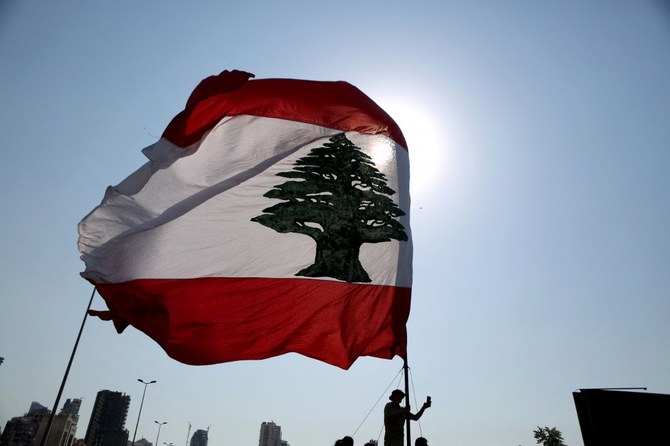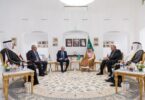Khaled Abou Zahr
More and more voices across the political spectrum in Lebanon are expressing the need for a new political system. There is a growing consensus, even among political foes, that the confessional system no longer works – or, to be precise, never worked. However, this might all be “philosopher” talk in the pejorative Arabic sense. These voices – mine included – have no impact on realpolitik. It is just theory, while others are holding AK-47s and controlling the gritty backstage political deal-making. But this should not stop people hoping for or dreaming of change.
Among the dreamers, there are now two main paths for a new Lebanon. To start with, both aim to put an end to confessionalism. The two paths are the centralized executive and the federation. In the centralized executive version, the call is for a universal direct election of the president and the cancellation of all confessional laws, or the existing pro rata system, through the establishment of a civil state. In the federal system, it is about recognizing the various confessions and giving them autonomy and decision-making power at the local level. And so, we quickly notice that, in Lebanon, even in dreams there is confrontation.
I will be a cynic and say that the vision of a centralized executive power is in fact the continuation of the nightmare Lebanon is living. And those who dream of it are either manipulated or are the unwilling accomplices of those holding the power and the AK-47s today. Nevertheless, the transition to either system carries major risks. In the presidential system, the risks are bigger, as it will ostracize entire smaller minority communities. This could lead to violent clashes. In the transition to a federation, the risks of secession are real, as well as the delimitation of zones, which could lead to clashes.
The centralized civil system is not the right solution for Lebanon because, although you can easily cancel confessions in identity documents, you cannot cancel them in people’s blood. This is the reality. This system would lead to continuous tensions and eventually would bring back the pro rata system. This is simply because the executive will seek a consensus and aim to balance decision-making between all confessions. In the worst scenario of this system, one confession will take full power and oppress, to differing degrees, all the others. In fact, despite its claims of canceling confessionalism and making all citizens equal, this system would solidify that system.
A federation would be a much better solution for Lebanon. It would recognize each community and celebrate them. It would give each community its own authority and autonomy. This would avoid the pro rata balancing act that invites corruption. It would make each political leader accountable in front of their constituents. They would no longer be able to hide mismanagement by exploiting the fear of the other. A federation would allow each community to govern itself on what matters the most to them: education, healthcare, security and much more. More importantly, it would have the power to shift the country from confrontation to positive competition.
The main point here is that the presidential system would keep Lebanon as a victim of external geopolitical shifts. The fight between communities to be the leading group would never stop. And each community would seek or even beg for foreign support to protect its interests. Nothing would change and Lebanon would never reach stability, just as was the case during the various occupations of the country. Once again, a federation would cancel all of this. There would be no need for any community to seek protection from the others as they would all live peacefully side by side. In a federation, they would all unite in the face of outside threats to protect federal strategic interests.
Ultimately, little government is good government for Lebanon. The current crises have shown that the Lebanese can self-manage and do better when the government is not involved. Moreover, despite the depth of the crisis and the geopolitical tensions, until now, security events have been limited. This is not due to the actions of the government or the political leaders, it is because of the actions of the people.
A Lebanese confederation would hence be a perfect embodiment of what the Lebanese are. Moreover, the versatility of federations allows for each state or region to vote on laws and move faster on what matters the most to them, while the others have a chance to witness this and decide whether or not to follow suit. It would definitely bring greater protection to each community and dissipate intra-confessional friction. Let each group have their own councils and vote on the laws that impact their everyday lives.
However, in the end, whether a strong executive or a federation, this is only the form and is meaningless without a vision, leadership and strategy, all of which are missing in Lebanon today. Short of this formulation, both systems are just useless dreams that will be crushed by those holding the AK-47s. The Lebanese urgently need to decide what they want their future to be like and encourage the formulation of a vision that is at the level of the ingenuity of the people. A good start might be to state what we stand for and not just what we stand against. Only then will the transition to a new political system be possible.







